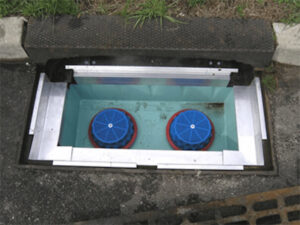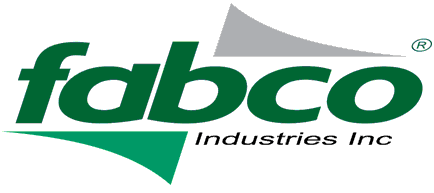Stormwater Products For Every Configuration
A Long Island NY Stormwater Products Manufacturer
With projects spanning from recycling or scrap metal yards, to manufacturing facilities or transfer stations, the stormwater products team at Fabco Industries is determined to help you find the best way to supply you with stormwater products that fits your specific needs. Our new Industrial Applications Brochure highlights the different situations that our stormwater products can be used for, and how our products help you reach the solution you need.

Many industrial facilities across the country have stormwater discharge permits that require compliance in the form of specific pollution prevention practices dealing with many common sources of pollution. In addition to the actual regulations, these facilities very often have older collection and conveyance systems that can complicate retrofit applications.
Fabco Industries is an industry leader in the design, manufacture and application of engineered stormwater products. We practice a philosophy of continuous product innovation, research and development. From basic good housekeeping to pollutant specific cartridge driven treatment with proprietary media, Fabco has the design expertise and quality fabrication capabilities to help bring your site into compliance.
Click here to view the Industrial Applications Brochure.
Stormwater Products Update:
• Use a commercial car wash or wash your car on a lawn or other unpaved surface to minimize
the amount of dirty, soapy water flowing into the storm drain and eventually into your local
waterbody.
• Check your car, boat, motorcycle, and other machinery
and equipment for leaks and spills. Make repairs as soon as
possible. Clean up spilled fluids with an absorbent material
like kitty litter or sand, and don’t rinse the spills into a
nearby storm drain. Remember to properly dispose of the
absorbent material.
• Recycle used oil and other automotive fluids at
participating service stations. Don’t dump these
chemicals down the storm drain or dispose of them in
your trash.
Lawn and Garden
• Use pesticides and fertilizers sparingly. When use is
necessary, use these chemicals in the recommended
amounts. Avoid application if the forecast calls for rain;
otherwise, chemicals will be washed into your local
stream.
• Select native plants and grasses that are drought- and pestresistant. Native plants require less water, fertilizer, and pesticides.
• Sweep up yard debris, rather than hosing down areas. Compost or recycle yard
waste when possible.
• Don’t overwater your lawn. Water during the cool times of the day, and don’t let water run off
into the storm drain.
• Cover piles of dirt and mulch being used in landscaping projects to prevent these pollutants
from blowing or washing off your yard and into local waterbodies. Vegetate bare spots in your
yard to prevent soil erosion.
Home Repair and Improvement
• Before beginning an outdoor project, locate the nearest storm drains
and protect them from debris and other materials.
• Sweep up and properly dispose of construction debris such
as concrete and mortar.
• Use hazardous substances like paints, solvents, and
cleaners in the smallest amounts possible, and
follow the directions on the label. Clean up spills
immediately, and dispose of the waste safely. Store
substances properly to avoid leaks and spills.
• Purchase and use nontoxic, biodegradable, recycled,
and recyclable products whenever possible.
• Clean paint brushes in a sink, not outdoors. Filter
and reuse paint thinner when using oil-based paints.
Properly dispose of excess paints through a household
hazardous waste collection program, or donate unused
paint to local organizations.
• Reduce the amount of paved area and increase the amount of
vegetated area in your yard. Use native plants in your landscaping
to reduce the need for watering during dry periods. Consider directing
downspouts away from paved surfaces onto lawns and other measures to increase
infiltration and reduce polluted runoff.

